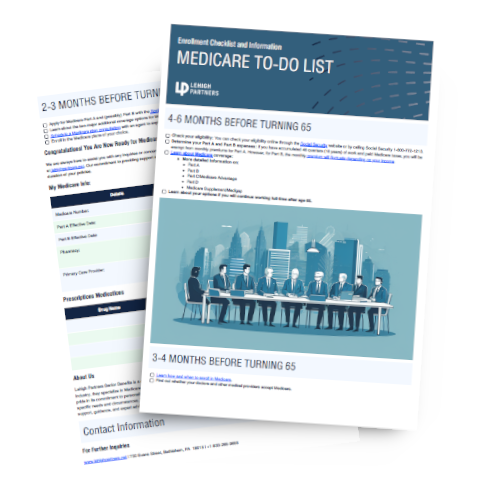State programs can save you money on your Medicare premiums.
State programs can save you money on your Medicare premiums.
You can get help from your state paying your Medicare premiums. In some cases, Medicare Savings Programs may also pay Medicare Part A (Hospital Insurance) and Medicare Part B (Medical Insurance) deductibles, coinsurance, and copayments if you meet certain conditions.
There are 4 kinds of Medicare Savings Programs:
- Qualified Medicare Beneficiary (QMB)
- Specified Low-Income Medicare Beneficiary (SLMB)
- Qualifying Individual (QI)
- Qualified Disabled & Working Individuals (QDWI)
If you qualify for a QMB, SLMB, or QI program, you automatically qualify to get Extra Help paying for Medicare prescription drug coverage.
It’s important to call your State Medical Assistance (Medicaid) office or fill out an application if you think you could qualify for savings.
Where can I get more information?
- Visit Medicare.gov to view or print Medicare publications and find helpful phone numbers and websites.
- Call 1-800-MEDICARE (1-800-633-4227) and ask about getting help paying for your Medicare premiums. TTY users can call 1-877-486-2048.
- Call your State Medical Assistance (Medicaid) office. Visit Medicare.gov/contacts or call 1-800-MEDICARE to get their phone number.
You have the right to get Medicare information in an accessible format, like large print, Braille, or audio. You also have the right to file a complaint if you feel you’ve been discriminated against. Visit Medicare.gov/about-us/accessibility-nondiscrimination-notice, or call 1-800-MEDICARE (1-800-633-4227) for more information. TTY users can call 1-877-486-2048.
Medicare Advantage with Part B Premium Reduction
The Medicare Giveback Benefit is a Part B premium reduction offered by some Medicare Part C (Medicare Advantage) plans.
If you enroll in a Medicare Advantage plan with this benefit, the plan carrier will pay some or all of your Part B monthly premium. The amount covered can range from 10 cents to the full Part B premium cost.
Be aware that this reduction amount is subject to change each year, so it could be that the reduction amount increases or decreases in subsequent years. I say this to make sure that you are aware you should choose a Medicare Advantage plan that really fits you in all the other ways.
To be eligible, you must:
- Be enrolled Original Medicare (Parts A and B)
- Pay your own Part B premium
You are not eligible if you receive Medicaid or any government assistance that helps you pay your Part B premium. Also, the Part B Giveback is restricted to certain states and counties. Plans may not be available in your area.
Deduct your Medicare Premiums from your Taxes
Deducting medical premiums from your tax return is allowed in certain circumstances and depends on the type of Medicare premium:
- Medicare A — You can only include Medicare A premiums if both of these are true:
- You voluntarily enrolled in Medicare A.
- You aren’t covered under Social Security.
- Medicare B — This is supplemental insurance, and you can include it.
- Medicare Part D — This is voluntary insurance and it’s always includable.
You can deduct medical premiums for Medicare and your other medical expenses. To do so, these must be more than a certain percentage of your adjusted gross income (AGI).
Depending on your age and the tax year, this percentage is either:
- 7.5% of your AGI
- 10% of your AGI
Report medical expenses on Schedule A, and you must itemize to deduct them. The payroll tax for Medicare is never a medical expense.
Self-employed individuals may be able to deduct 100% of their premiums – check with your CPA or accountant for more information if you work for yourself or own your own company.
Pay Medicare Premiums with your HSA
Once enrolled in Medicare, an individual can no longer contribute to a Health Savings Account (HSA). However, a Medicare beneficiary can use HSA distributions to pay for qualified medical expenses, such as premiums for Part B, a Medicare Advantage plan (Part C), a prescription drug plan (Part D), and long-term care insurance, and Medicare expenses, such as copayments and deductibles.
But, while you can use HSA distributions to pay Medicare premiums, these funds cannot pay premiums for Medicare supplemental policies, also known as Medigap policies.
Do you have questions about any of these ways to reduce Medicare premiums? Feel free to give us a call for guidance at 833-265-9655

